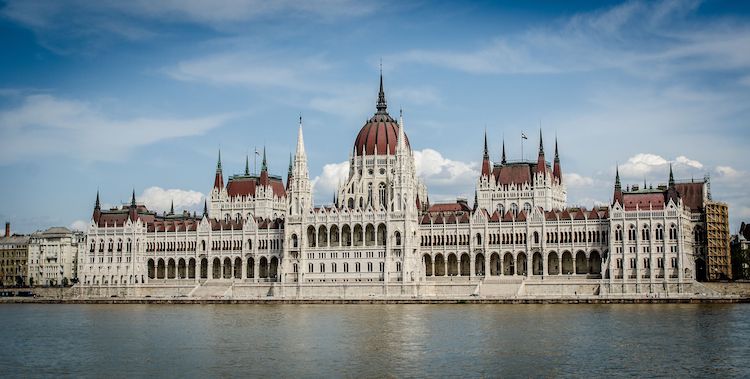By Sean Buchanan
This is the second in a series of reports highlighting salient aspects of Transparency International‘s latest analysis on challenges posed by corruption around the world as well as successes and failures of efforts targeting a scourge that eats into the vitals of human rights. – The Editor.
LONDON (IDN) – When it comes to corruption, Western Europe is the world’s best performing region while the Eastern and South-East Europe region is among the worst, according to the latest index from Transparency International (TI), the global anti-corruption coalition.
The group’s Corruption Perceptions Index (CPI) 2017 released on February 21 shows that authoritarianism rose across the region in 2017, hindering anti-corruption efforts and threatening civil liberties, with non-governmental organisations (NGOs) and independent media experiencing challenges in their ability to monitor and criticise decision-makers.
For example, in Poland, a government body now manages and distributes vital funds for NGOs while, in Romania, the government has proposed a bill which would impose disproportionate reporting requirements on NGOs. Comparable laws directed at curbing NGOs have also been passed in countries throughout the region.
According to TI, Hungary is one of the most alarming examples of shrinking civil society space in Eastern Europe. Recently, the country drafted legislation that threatens to restrict NGOs and revoke their charitable status.
Equally troubling, the government also passed a law that stigmatises NGOs based on their funding structures and adds burdensome reporting requirements. As a result, more than 20 NGOs have filed legal proceedings against the government in both the Hungarian Constitutional Court and the European Court of Human Rights.
Ukraine, reports TI, continues to see attacks against anti-corruption activists, NGOs and journalists exposing corruption. Smear campaigns, illegal inspections, lawsuits, harassment and beatings are all instruments sometimes used by the powerful elite against those who drive anti-corruption efforts.
Currently, civil society organisations working on anti-corruption issues are forced to fill out cumbersome e-declaration forms that make daily operations very difficult. Despite calls to end this practice, as well as subsequent promises made by the government, these requirements still exist.
Efforts to establish an independent anti-corruption court were also delayed despite pressure from international and national stakeholders and, while an independent anti-corruption court is urgently needed, an independent judiciary is similarly important. Without this, civil liberties and freedom of the press are an illusion.
TI notes that a legal system independent of political influence is a prerequisite for safeguarding the rights of all citizens, including those pushing anti-corruption reforms.
Meanwhile, for the past 19 months Turkey has been governed under a state of emergency that suspends all separation of powers and establishes decision-making by statutory decree. During this period, an estimated 120,000 public officials and legal professionals lost their jobs, making it nearly impossible for the public sector to perform effectively
According to Transparency International Turkey, more than 40 percent of public procurements are not subject to the public procurement law and 28 percent of those subject to the law are not open tenders. As a result, open and fair public procurement has become the exception, rather than the rule.
In addition, the rights of journalists and civil society organisations also decreased. In the last year alone, more than 70 journalists and civil society activists were imprisoned.
Equally alarming, a lack of transparency in budget spending has reached new heights. In Turkey, all public enterprises with a total value of more than 40 billion dollars are concentrated under the Turkish Wealth Fund which has not published any figures or activity reports in the last two years. In addition, a discretionary fund for the president and prime minister, who have no obligations to report the details from that account, also increased by nearly 800 million dollars.
In Western Europe, corruption is said to remain a serious issue Italy, although institutional and legal structures are being built to combat it. Four relevant laws were recently approved on whistle-blowing, transparency, undue influence and anti-money laundering which represent some progress. Nevertheless, it will take time before any of these laws lead to real change.
One of the most worrying cases in Western Europe, says TI, is Finland. Traditionally viewed as the bastion of good governance and one of the world’s top performers, the country lost ground on the corruption index. This could be attributed to indistinct borders between public and private interests, where some people holding public office do not always maintain a proper culture of abstaining from decisions that may affect them.
With no regulations placed on financial disclosures or conflicts of interest for the head of state, this may also have a significant impact. An unwillingness of the Finnish prime minister to respond to journalists’ inquiries about assets and investments caused a crisis situation and seriously damaged relations between the media and government.
Taking an overview of the region, TI calls for more civil engagement to hold leaders and governments to account, arguing that corruption cannot be fought if there is limited civic space for people to engage. Nor can steps forward be taken if a repressed media cannot report cases of corruption.
To truly turn the tide against corruption, says the anti-corruption group, a change in mind-set and behaviour is needed. At their core, governments should serve communities and be transparent in their activities, and communities should be able to hold governments to account and have a means to offer constructive input. [IDN-InDepthNews – 28 February 2018]
Related article > Beware of Branding Africa as the World’s Most Corrupt Region
Photo: The building of the Hungarian Parliament, May 2013. According to TI, Hungary is one of the most alarming examples of shrinking civil society space in Eastern Europe. Credit: Wikimedia Commons.
IDN is flagship agency of the International Press Syndicate.
facebook.com/IDN.GoingDeeper – twitter.com/InDepthNews

